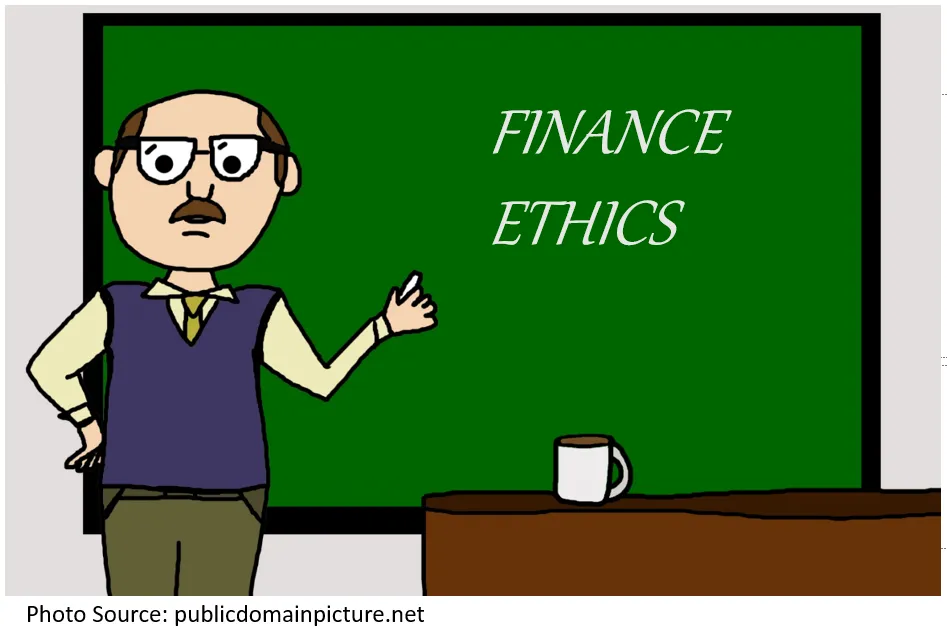
This post will discuss the definition, importance, promotion, and significant concepts that teachers like me can discuss about Finance Ethics. Let me just give you a brief recent history of ethics in business. If there is one theme that will be remembered on how businesses were conducted during the last decade and a half, aside from the great technology boom and the growing number of billionaires coming from that sector, it would have to be the excessive corporate greed and negligence that lead to the collapse of several big renowned companies (I’m talking about Enron, Worldcom, Arthur Andersen, and the likes) and a Great Recession so deep that it almost rivaled the Great Depression and questioned human values when it comes to money and power. Because of these ethical lapses, a call for a more serious and sustainable ethical conduct, stronger corporate social responsibility, and the emergence of socially responsible investments are just the few responses that the public has done to show more awareness on what the awakened corporate world is doing.
The emergence of the relatively new academic discipline called Finance Ethics is important because it can serve as a moral compass, providing us with the proper direction in preventing fraudulent activities. To formally define, Finance Ethics is an emerging discipline that is part of Business Ethics (which is a form of applied ethics or professional ethics) that studies moral values and judgment, and ethical problems and conduct that arise in the field of finance. The discipline studies the philosophical arguments that seek to propose a set of ethical principles to govern individual and collective behavior; and inquires to the motivations behind behaviors, and guides conduct of players in the field of finance.
The financial industry has the greatest need for stronger ethics and self-imposed discipline because they are at the heart of the economy, controlling and managing huge sums of money. As per the latest estimates, the total financial assets of the industry have already reached $294 trillion as per the article of Business Insider in 2015. This amount, is so staggering that even a small fraction of fraudulent activity can still have huge implications. Finance Ethics as a relatively new academic discipline can help us educate current and future business professionals in the proper handling of financial and accounting information to prevent future misdeeds. This in turn minimizes economic burdens coming from fraudulent activities and compliance costs, because of excessive regulations.
In my Business Ethics and Finance Ethics classes, case studies are the most effective way of teaching. From my lectures I have encountered the following biggest financial and accounting scandals that have shaken the industry. Probably, we are more familiar with celebrated cases like AIG, Lehman Brothers and Enron. But may not be aware of the following examples all around the globe: First, Satyam Computer Services of India, where they padded revenue by US$1.5 billion; Second, Waste Management, Incorporated, an American waste management and disposal services company who increased after-tax profits by US$1.7 billion; Third, Petrobras Incorporated, a Brazilian oil company who removed US$2 billion of bribery-related cost; and Lastly, Worldcom Incorporated, an American telecommunications company who inflated assets by as much as US$11 billion.
This is the part 1 of this essay. See you on the second part.